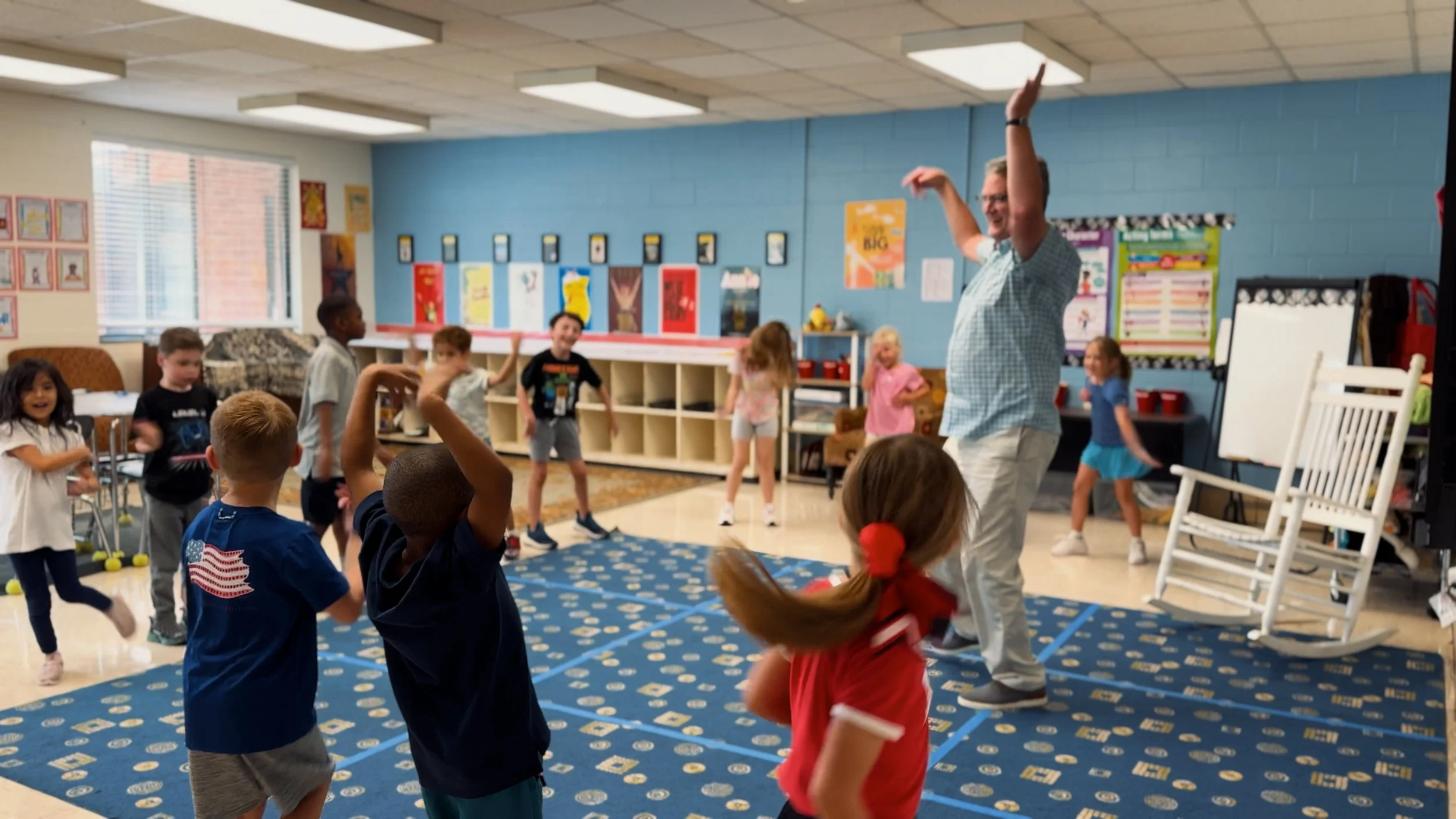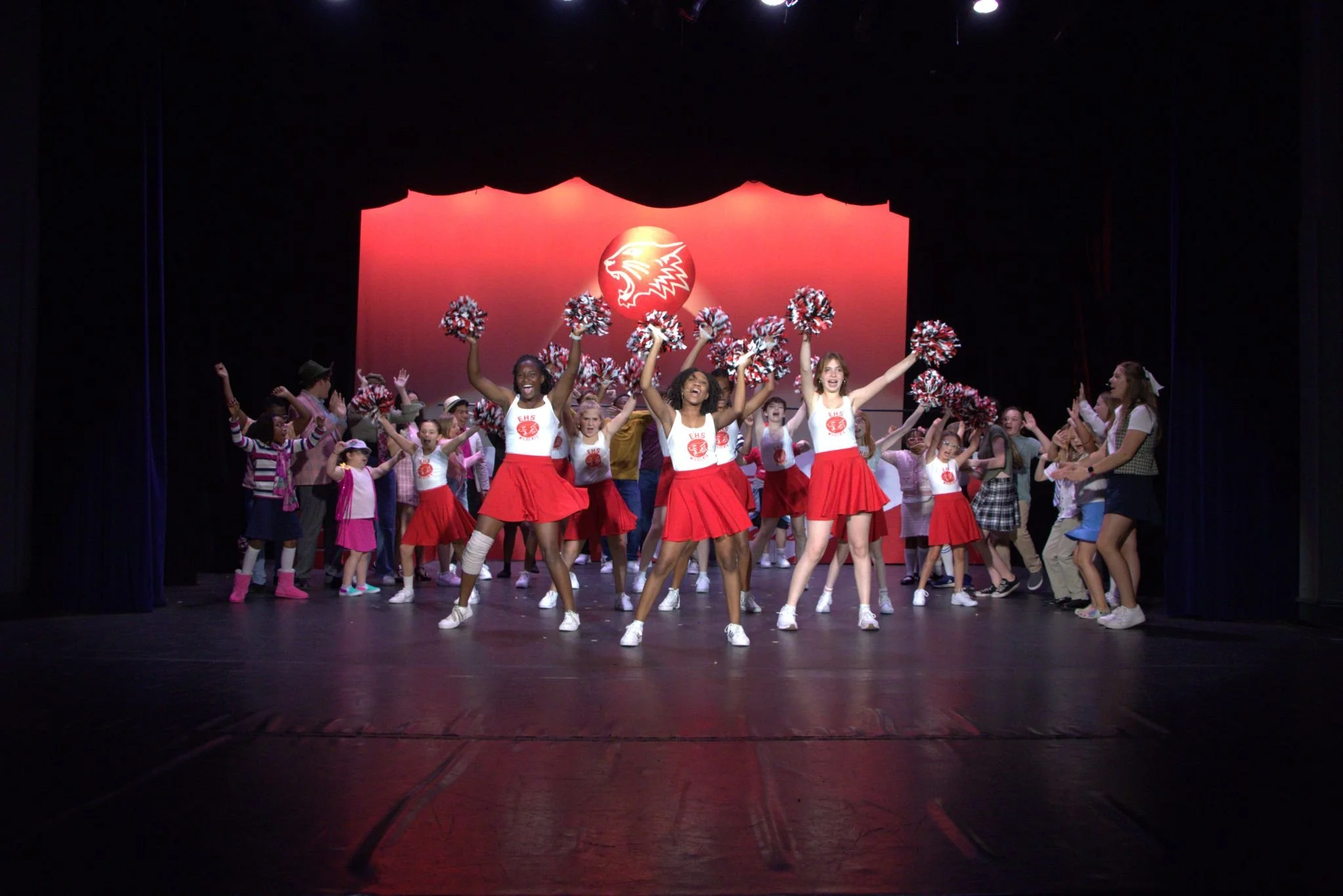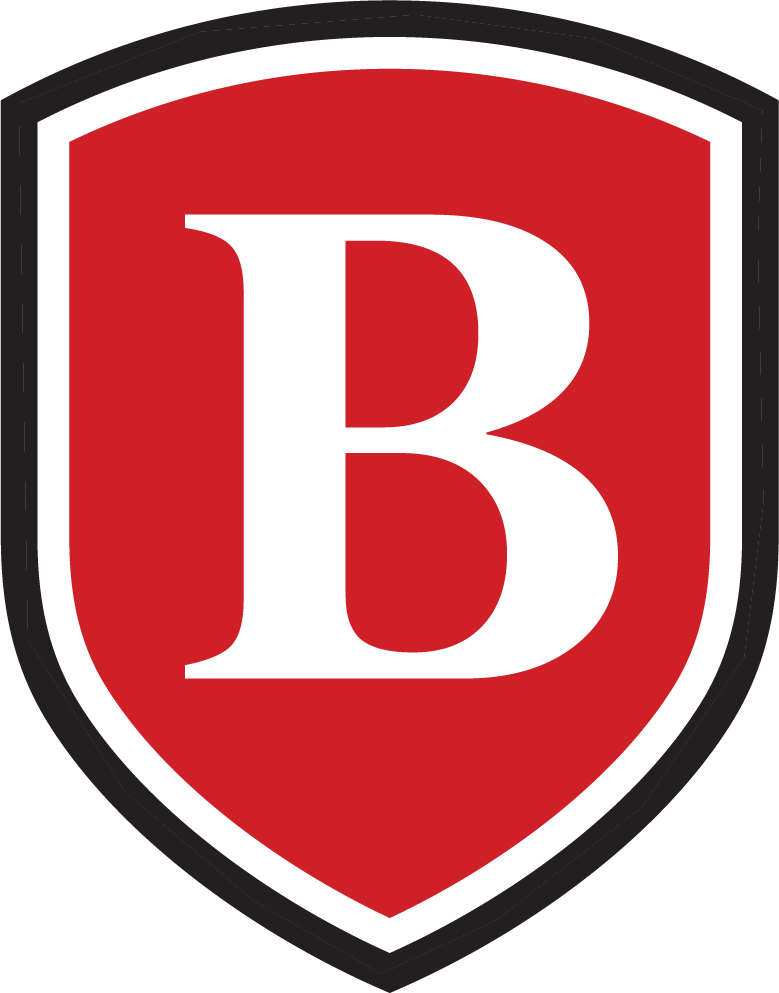
Drama at The Burlington School
The drama program at TBS brings stories to life while building confidence, creativity, and collaboration. From musicals to plays, our productions highlight the talent and dedication of our students.
Drama students strengthen skills like projection, improvisation, and ensemble work through scene studies, acting exercises, and polished performances. Along the way, they develop trust, teamwork, and self-expression that extend far beyond the stage.
TBS drama also connects to the heart of a Spartan education. Productions often align with school-wide themes—such as leadership and perseverance—making the lessons students learn in rehearsal resonate throughout their academic and personal journeys.
At TBS, drama is more than performance—it’s growth, storytelling, and community.

Lower School Drama
Drama begins early at TBS, with students in transitional kindergarten stepping into the world of imagination and play. In these formative years, they practice essential skills like listening, cooperating with others, following directions, and focusing their attention—while discovering the art of pretending. These early experiences help them develop confidence, self-esteem, and trust in their peers.
As students progress through Lower School, their skills expand. By first and second grade, they begin learning stage direction and presentation skills, exploring how to bring characters and stories to life. By fourth grade, Spartans are writing short scenes, telling stories with intention, and performing with growing creativity and poise.
Middle School Drama
In Middle School, drama classes build directly on this foundation. Students refine their stage presence, strengthen projection and expression, and learn to follow artistic direction with confidence. Improvisation, games, and scene studies help them take creative risks while encouraging collaboration and trust within the ensemble.
As they grow, Spartans explore more complex characters and performances, learning to balance individual creativity with teamwork. By the end of Middle School, students are not only stronger performers but also more confident leaders, capable of supporting their peers and commanding the stage.

Upper School Drama
In Upper School, drama is offered as a fine arts elective that fulfills one of the graduation requirements. Classes focus on advancing presentation and acting skills—such as projection, improvisation, and ensemble work—through scene studies, acting exercises, and polished performances for audiences. Students also analyze great works of theater, explore the methods of Stanislavski, Meisner, and Spolin, and use these techniques to model, write, and perform original pieces.
With multiple years of experience, students have the chance to direct or produce, taking on leadership roles within the program. All students in grades 3–8 are welcome to audition for the fall play and spring musical, while Upper School drama students are required to participate either on stage or behind the scenes. Guided by Mrs. Baker, the program emphasizes trust, respect, and collaboration, helping students set goals that range from building self-confidence to preparing for future opportunities in the performing arts.


